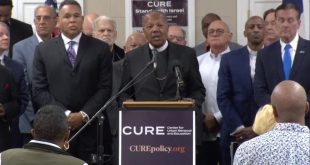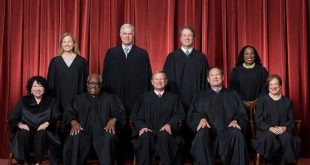The time is over for leftists and secularists getting their way when it comes to religion. The founders thought freedom of religion, speech, assembly, and petitioning the government for redress were so important, they enumerated these rights in our founding documents.
But secularists have done a good job suppressing religion in the public square and in government schools for decades. Those days are gone, thanks to a changing electorate and recent court cases favorable to those who want to live their faith in their everyday lives.
The American Center for Law & Justice (ACLJ) represents a teenage girl, Jenna, who attends a government school in New York. She wanted to start a Bible club, which school officials apparently resisted for a while but finally allowed.
Jenna’s trouble wasn’t over. She hung posters for club meetings — and school officials removed them. From ACLJ:
When Jenna asked why, administrators told her the posters had “too many Bible verses” and insisted the club could not be called the “Good News Club.” She was forced to change the group’s name and strip her posters of any religious imagery, including a cross and even a single Scripture reference.
There is nothing objectionable about the name “Good News Club.” It’s not obscene, for example. These bureaucrats obviously know the name points to the Gospel. That’s what they don’t like. Do they censor secular clubs this way?
ACLU said school officials censored Jenna because of her religious messages. “School officials went as far as insisting on reviewing her posters to determine whether they were too religious.”
That is called religious discrimination.
ACLJ sent a legal letter notifying the school that they have violated the First Amendment and the Equal Access Act, which bars government schools from “targeting and suppressing student religious expression.” Under the law, government schools must grant religious clubs the same rights as secular clubs. No more Lemon test rationalizations.
“The law is clear: School officials cannot censor religious speech simply because others might disagree with it,” said ACLJ. “The Supreme Court has repeatedly ruled that religious speech cannot be singled out and censored.”
Photo credit: ACLJ
Stand up for freedom! Join our newsletter to stay up to date.
 CURE News and Clergy Blog News and Commentary for Christians
CURE News and Clergy Blog News and Commentary for Christians



